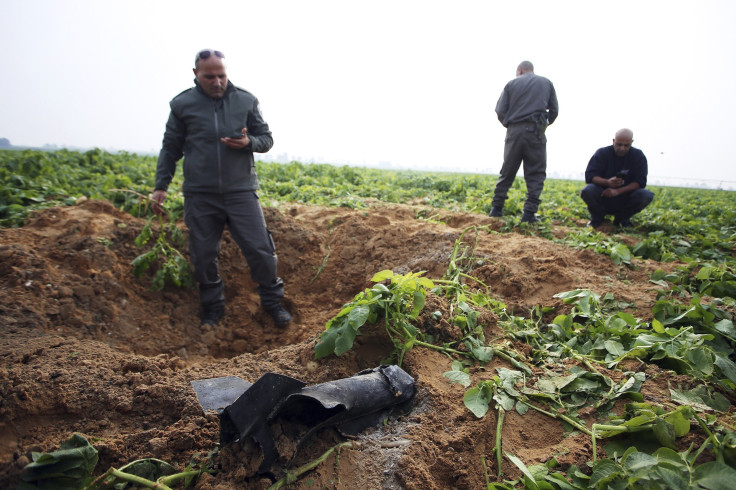Israel And Hamas Exchange Fire, But Gaza Residents Say Focus Remains On Reconstruction

An Israeli aircraft bombed a Hamas base in southern Gaza on Friday, in the first attack on Gaza since the end of the war this summer. The bombing was in retaliation for a Hamas rocket that landed in southern Israel earlier in the day. No casualties were reported by either party, and residents on the ground in Gaza took the exchange in stride and said their focus is still reconstruction, the residents said.
Friday's rocket attack on southern Israel marked the third time since the end of the war that militants fired into the country. Israel did not retaliate after the first two incidents. The 50-day war in Gaza killed more than 2,200 Palestinians and 73 Israelis.
Palestinian officials complained Monday that international donors have failed to deliver billions of dollars in aid money that was expected to help rebuild Gaza. According to figures from the United Nations, about 96,000 homes in Gaza were damaged from the war, which left about 100,000 people homeless. International donors said at the end of the war that they would pledge $2.7 billion. But Palestinian Deputy Prime Minister Mohammed Mustafa said "not even one penny" has been received, the Associated Press reported.
Reconstruction efforts were left to humanitarian and other aid organizations on the ground because the governing structures in Gaza and the West Bank, Hamas and the Palestinian Authority, were stretched too thin. Hamas had limited funds and, after Israel destroyed what it said was a majority of the group’s smuggling tunnels, had no way of getting construction materials into Gaza, blockaded by both Israel and Egypt.
In the past six years, Palestinians in Gaza have rebuilt their homes twice as a result of wars with Israel. At the end of previous wars, in 2009 and 2012, the Palestinian Authority, which was in charge in Gaza until 2006, worked with donors and wealthy Arabs to help reconstruct homes and businesses. It also negotiated with Israel to allow construction materials to enter the Gaza Strip. In the most recent wave of violence, factories and warehouses that held construction materials in the Strip have been destroyed by fighting.
The Israeli and Egyptian blockade of Gaza, and the destruction of tunnels through which Hamas smuggled not only weapons but also goods and construction material, complicates the process. At the end of the war the U.N. brokered a deal that allows for the flow of limited construction materials into the Strip.
Because of the slow reconstruction process, many Palestinians are still trying to leave the Strip. On Sunday, Egypt opened its Rafah border crossing, allowing for Palestinians to leave Gaza. It was the first time in almost two months that Egypt opened the crossing.
Rafah is the only major crossing that allows Gazans to leave the Strip without having to enter Israel. Egypt shut the crossing on Oct. 25 after fighters in Egypt's Sinai region, bordering Gaza, killed dozens of security forces. Since then, Egypt has opened the border crossing only twice.
According to various news reports, thousands of Palestinians lined up at the Rafah border crossing to attempt to leave the Strip, but only 600 were allowed through. It is not clear if the border crossing will remain open past Monday.
© Copyright IBTimes 2024. All rights reserved.











